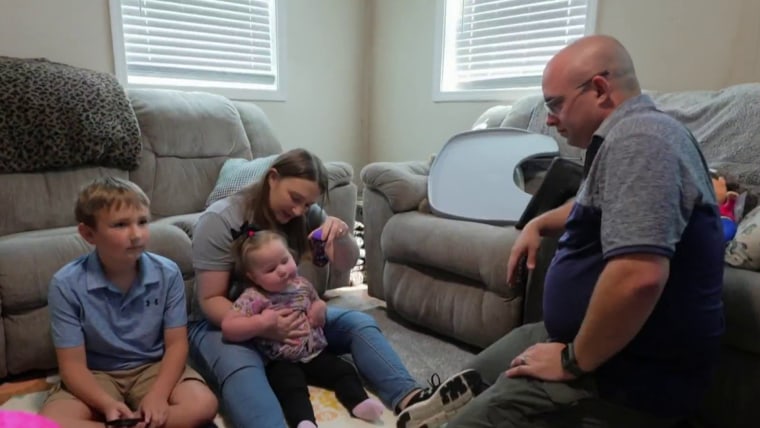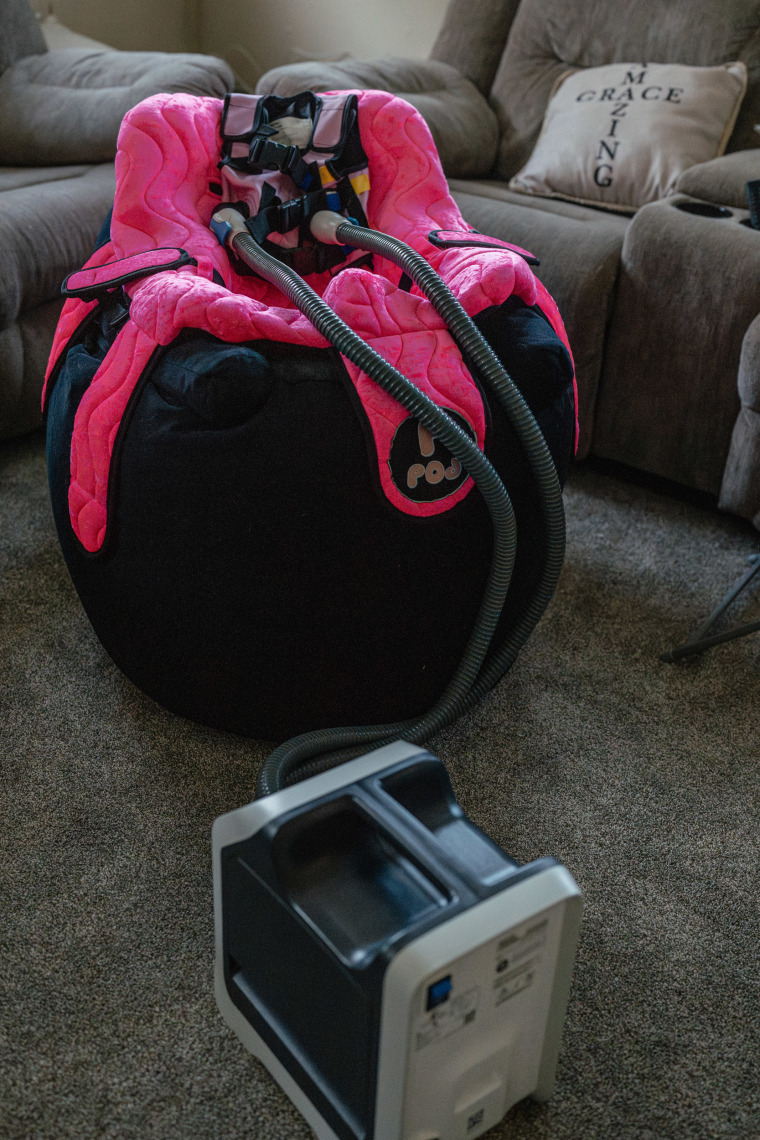To prevent pneumonia, Carrie Lazoen says her 2-year-old daughter, Emmalyn, needs a “shaky vest.”
Emmy, as her family calls her, has a rare genetic condition called Aicardi syndrome. The disease — which can shorten life expectancy — affects her brain, causing seizures, vision problems and significant developmental delays. As a result, Emmy can’t walk independently. Everyday activities require careful monitoring. She can’t sit on her own or hold her head up for long.
A shaky vest, formally called a high-frequency chest wall oscillation vest, vibrates when Emmy wears it to loosen and clear mucus in her lungs.

But Lazoen said it took several months and three denials before the family’s primary health insurance, United Healthcare, approved coverage to rent the vest. In one denial letter viewed by NBC News, dated April 17, United wrote that Emmy’s condition didn’t qualify for coverage of the vest in part because Emmy didn’t get frequent lung infections — precisely what the vest is supposed to prevent.
The episode was just one of many the Lazoens, of Manito, Illinois, have dealt with when it comes to covering Emmy’s care.
“It’s awful,” Lazoen said. “It shouldn’t be this difficult to deal with them when you have a child with disabilities.”

Ultimately, most of the family’s health insurance claims have been approved. But the Lazoens’ story underscores a harsh reality for many families who have children who suffer from a debilitating medical condition. They’re forced to wage two fights: one for their child’s care and another against an insurer’s bottom line.
If you are dealing with bills that seem to be out of line or a denial of coverage, care or repairs, whether for health, home or auto, please email us at Costofdenial@nbcuni.com.
Some claims approved one month are denied the next, Lazoen said; other times the same claim is denied up to four times. These include claims for medical equipment, as well as regular physical and occupational therapy visits. Lazoen said that, overall, most of the claims she submitted were initially denied by United. They sometimes had to turn to their secondary insurance, Blue Cross Blue Shield, for approvals, Lazoen said.